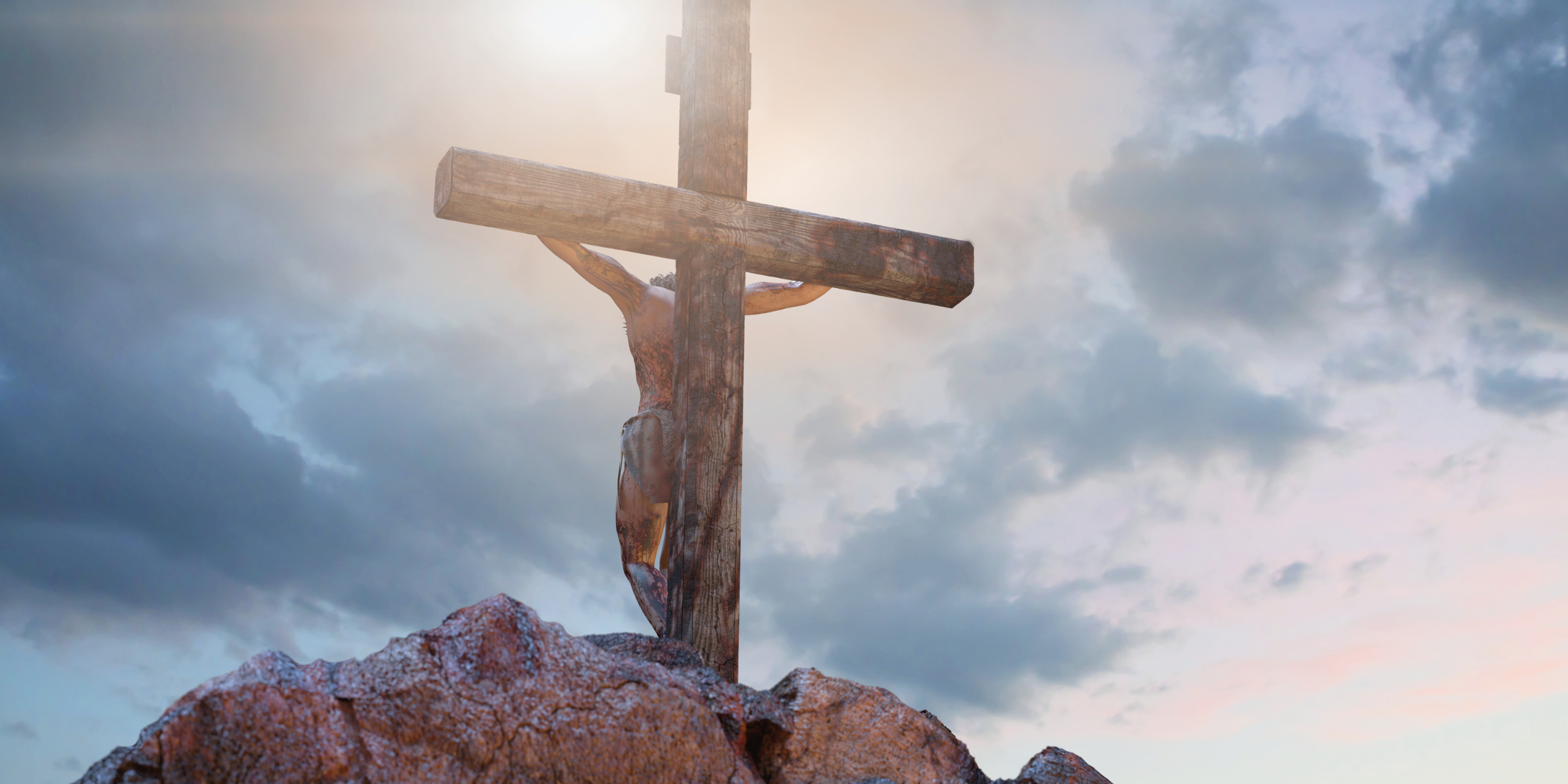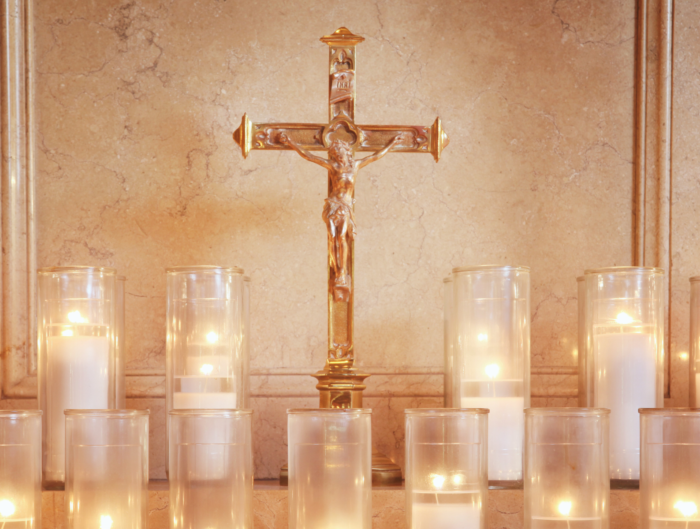If you’re a believer, you know it’s important to follow God’s will and not your own. Simple concept, not always so easy to execute. Among friends of mine, when the topic of following God’s will has come up, there always seems to be confusion about how to know what God’s will is. Many desire to follow God’s will, ‘if only He would make it more clear’ seems to be a common sentiment.

I’m not sure I really know how to determine with certainty what God’s will is because He is the master architect not me. On the contrary, I have learned that the closer I get to Him, the easier it seems to learn, see, and understand Him and perhaps even His desires for me, and thus His will for me. This, I believe, is God’s ultimate intention, He wants US and so He uses the process of discernment to draw us further into Him. He wants us to get as close to Him as possible, which makes sense because we can only understand others better by getting to know them better. Therefore, keeping God at a distance is sure to leave His will for your life a bit unclear.
God requires us to lean into wisdom, trust in Him, and act without a foolproof blueprint, but with faith in Him instead. My belief is that God’s will is not singular and is something we are always learning and discerning and praying through and it requires a great amount of faith as much as it requires relationship and love (charity) of Him.
Aside from silence, prayer, listening, discernment, and putting your faith into action I can’t tell you with 100% certainty how to determine God’s will for your life because His will for you is precisely that – for you, personal. I have, however, come to realize that I can tell you an uniquely beneficial means to discerning God’s will for your life simply by determining a few things it is NOT.
ELEVEN Things That are NOT God’s Will For Your Life.
1. Control
Sorry to break it to you friends, but God’s will is definitely NOT controlled by you. He is in control. That is why it’s called, “God’s will”. Stop trying to take charge. You are not the boss, no matter what the culture tells you. While it’s true you can choose to be the boss of your own life, when you do so you push God aside. As they say, let go and let God.
2. Unrest
In other words, God’s will is not lack of peace. God is not chaos. He is the peace among the chaos. He is the countermeasure to chaos. His plans might get wild (and often they do), but that doesn’t mean they will leave you without an interior calmness. As St. Augustine said, “Our hearts are restless until they find rest in thee.”
3. Effortless
Sure, God’s will might seem somewhat easy to see and follow at times, but it always takes effort, even if much of that effort comes in the form of prayer. God’s will does not give rise to the deadly sin of sloth.
4. Confusion
God is not in the business of being a trickster. Just because His will does not always appear to be black and white, that does not mean He is some sort of taskmaster setting you out into an impossible maze only to gleefully watch you run in every wrong direction while you are desperate to find your way through. If it’s a source of utter confusion, it’s not God.
5. Fleeting
Satan distracts with fleeting thoughts. God directs with constancy. Sure God’s will can take different twists and turns, but He is a constant guide. His plans are not the equivalent of taking random stabs at things that pop up in your mind hoping for a positive outcome. God’s will also is not a short-lived firework that’s bright for a moment and fades into oblivion. God’s will for you is complete and constant. God’s will is about the long game. Even if you should stray, the draw of you to Him will not. He is like a magnetic force to you that you cannot break or outrun.
6. Fruitless
If the end is not fruitful it isn’t from God. That doesn’t mean you won’t undergo pruning or even immense loss, but fruitfulness (in light of God’s Kingdom) should be the ultimate end goal. This fruitfulness is often the reaping of sown virtue into your life. Does it bring about virtue or turn you away from virtue?
7. A Path into Sin
That doesn’t mean you will be free of sin, you’re human and you will surely sin. It means God’s will is not a path that will draw you into sin. God’s intent is to draw the sin out and away from you – to set you free so that you will not be a slave to sin. The means to the end matters, meaning the path which you take should not be one paved by sin
8. Always Easy
Sometimes God’s will is the hard thing. This world is hellbent on feeding us the lie that everything should be easy and make us feel good, that if it’s difficult or makes us feel a way we don’t necessarily desire to feel that we should just forget it. Well friend, I’m here to tell you that is a lie. Your soul is at stake and if you’re willing to ditch your salvation on account of God’s will being difficult to discern or do, that should tell you something.
9. Deprived of Joy
God’s will is quite the opposite. You will find joy in God’s will for your life. *This joy “flows from divine charity. It is the love of God poured into our hearts by the Holy Spirit.” says Father Hugh Barbour in an interview titled, Joy, on Catholic Answers.
10. Void of Free Will
God is not forceful. He won’t force you to do anything. His will is always a choice, but hear me when I say the choices you make will always have consequences. This is a fact of life whether you are striving to discern God’s will or not.
11. Without an End Goal in Mind
The purpose of God’s will for your life is to help you obtain everlasting life with God in Heaven. His will for you will absolutely have an end goal in mind. In fact, one thing you can ask yourself while discerning God’s will for your life is, “Will this aid in leading me to Heaven?”
NOW, I want you to apply each of these things that God’s will is NOT to the cross. What do I mean by that? While you look at Jesus on the Cross can you say the same about each of these things? Yes, Jesus is one in the same with God the Father by mode of the Trinity – three persons in one – while He is simultaneously the Son, who also followed the will of the Father. The greatest example He gave of this was the path to His crucifixion and subsequent resurrection.

So let’s apply this list to Jesus and the Cross to see how it measures up.
1. Control
Jesus on the cross is not about control. Jesus submitted to the will of the Father, even asking for Him to let this cup pass if possible. He asked to bypass the cup of the crucifixion if possible, but accepted that He was not in control and desired to follow the will of the Father. Had Jesus taken control and followed His human desire where would we be?
Matthew 26:38-39
Then he said to them, “My soul is sorrowful even to death. Remain here and keep watch with me.” He advanced a little and fell prostrate in prayer, saying, “My Father, if it is possible, let this cup pass from me; yet, not as I will, but as you will.”
2. Unrest
Jesus’s path to the cross was not without peace. He accepted the will of the Father and in the middle of the complete chaos surrounding Him He willingly (peacefully) accepted His sentence and quietly (peacefully) carried the cross, and handed himself over (peacefully) to be crucified. This was not because He was weak or crazy, this was because He knew and accepted the will of the Father wholeheartedly. He knew that Salvation (yours and mine) depended upon what the Father had in store for Him. He honored the Father in obedience.
3. Effortless
It goes without saying that the Cross was not a predestination that would be effortless for Jesus Christ. In fact, it took every ounce of effort from Jesus to fulfill God’s will for His life.
4. Confusion
Jesus was not confused about the Cross and what His mission was. He knew His purpose and path, and began revealing pieces of what was in store to those closest to Him well in advance of the crucifixion. Jesus spent an immense amount of time in prayer, communing with God the Father so that confusion about God’s will would cease to exist. Satan is the one who sows confusion. God sows clarity and steadfastness.
5. Fleeting
The cross was not a fleeting thought. Through prayer and closeness with the triune God, Jesus who shared in the Trinity had the consolation of constancy from the Father. He knew His purpose. He lived out that purpose daily. Jesus did not grasp for fleeting comforts and temptations, rather He stayed the course the Father prescribed.
6. Fruitless
The cross was the exact opposite of fruitless. In fact, the cross and crucifixion remains the most fruitful act in all of existence. The cross and crucifixion is where our future lies. The cross produced the fruit of our salvation.
7. A Path into Sin
The cross was the path away from sin, not into sin. God’s will for His Son was not only a sinless path for Jesus, but it was an example of how we should emulate a life in opposition to sin as well. We should strive eagerly to unite ourselves with the cross, even if this path takes us to our very death.
8. Always Easy
The cross was clearly not an easy path for even Jesus to follow. He grappled with it in the garden prior to his arrest, he physically took on the excruciating pain of everything “the cross” as we know it entailed. The cross was not the easy path, but it was the path.
9. Deprived of Joy
*As Father Hugh Barbour said, “joy flows from divine charity. It is the love of God poured into our hearts by the Holy Spirit.” There is no greater act of charity performed than that of the cross and crucifixion, the source of salvation for all humanity. Thus we must conclude that this most charitable act (despite the immense suffering) certainly produced a great flood of joy.
10. Void of Free Will
Jesus knew/knows His ultimate purpose and plan resides in the will of the Father. Even though Jesus is an equal part of the Trinity with God the Father, He still had to choose to follow the will of the Father. Jesus chose to freely accept the cross because His prayer revealed that the cross was what the Father was asking of Him.
11. Without an End Goal in Mind
There is no act that could produce an outcome so great as the Resurrection. Without the cross and crucifixion there would be no Resurrection. The cross would have been ostensibly inconsequential without the Resurrection. The end goal was the reason for the cross. The end goal of the Resurrection also cannot be separated from the cross.
God’s will is not always easy to discern, but I have learned it will make itself apparent through silence, prayer, listening, discernment, faith in action, and closeness with God. After taking it to prayer, apply this list of what God’s will is not to what you are discerning and see if it helps to make clear what God’s will IS for you!
“The greatest glory we can give to God is to do His will in everything.”
-St. Alphonsus Liguori
Have no fear,
Jackie
*Praem, H. B. O. (2021, February 3). Joy. Catholic Answers. https://www.catholic.com/audio/caf/joy












Leave A Reply